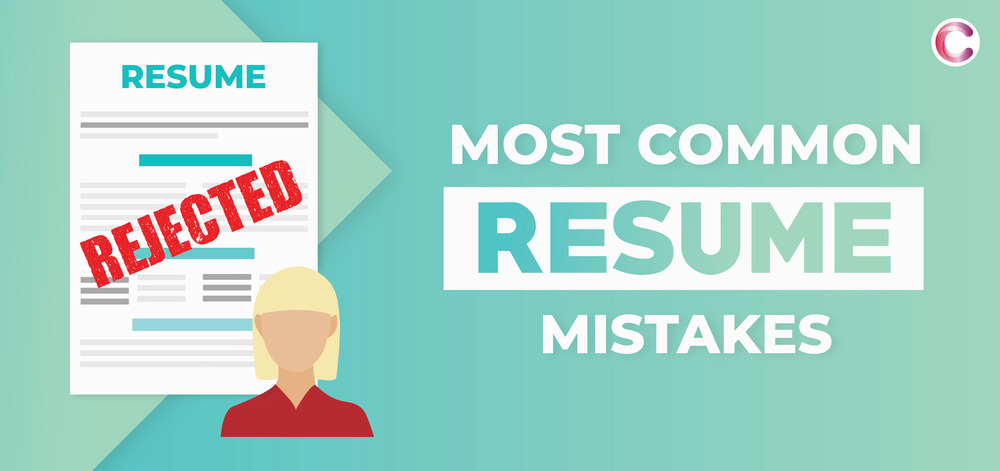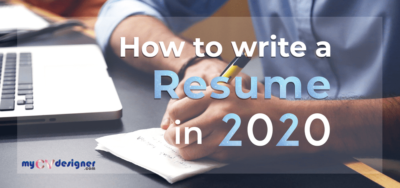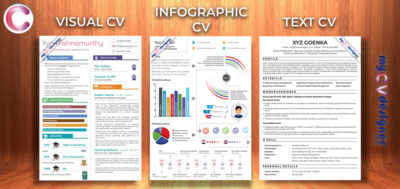Most common Resume mistakes:
Improper format:
An improper format can destroy your opportunity completely because the first-look on your Resume matters the most. The fonts you use should be readable, paragraphs and other contents should be properly implemented. An employer can reject someone instantly because of an improper Resume format.
Improper summary:
Most of the people make this mistake. They can not write their profile summary correctly. This is the section which a recruiter reads first on resumes. Recruiters search for something specific which may fulfil their criteria. They love to see things quantified using numbers or percentages. Example: ‘An accomplished sales manager that increased sales growth by 30% that generated 2 core in company revenue.’
Typos & grammatical mistakes:
While writing your own Resume, you must be careful about typos and grammatical mistakes. An interviewer is a highly experienced person who can instantly catch any grammatical mistakes within a few seconds. It can affect your impression and the interviewer might think that you are careless.
Lack of keywords:
Keywords are everywhere, so why not in your Resume! Today, keywords play an important role in resume writing. Proper keywords in your Resume can pass an ATS test and land you an interview. Lack of keywords can be fatal to these cases. So keep in mind that you have to put proper keywords on the first paragraph of your Resume. But if you deliberately stuff keywords into your resume or use a bunch of annoying buzzwords, it will have a negative effect. So, use proper keywords, but within a limit.
Lack of action verb:
An action verb explains what the subject is doing or has done. In a professional Resume, action verbs are used instead of phrases like ‘worked for’, ‘responsible for’. Like, ‘Increased sales growth…’, ‘Managed a team…’, ‘Developed a tool…’. This type of action verbs shows off your initiative.
Lack of career timeline:
A career timeline you have to add in your Resume if you are an experienced professional. If you are a fresher, you can show your education, certification and industrial training as a timeline. A career timeline signifies that you are an achiever and have a focus on your goal.
Long length format:
40 percent of hiring managers spend less than a minute reading a Resume. So it is obvious that you have to make something accordingly. If your Resume is too long, then it is a red sign for you. Generally a proper Resume should be completed within one or two pages.
Long paragraph:
Avoid long paragraphs. Recruiters generally avoid reading those bunch of words. Instead of a paragraph, you can make your highlights to-the-point and use bullets to arrange those sentences.
Unprofessional email ID:
An email ID is a must have and everyone knows that. But there is something that annoys employers sometimes. You may have only one email ID and this is well enough. But it should also look professional. If you already created an email ID for your social profile and that looks something like ‘[email protected]’ but you are applying for a teacher post, then it will be awkward.
Improper file name:
It is the most common method to build any resume using MS Word. There is a small thing that most people neglect, that is ‘File Name’. Suppose you made a well-built Resume but you have just saved it in a generic name. Nothing will happen until you directly attach that file with an email that you are sending to an employer or a recruiter. The receiver will download the attached file and will save it for further process. If the file name will be ‘New document 01’ or something like that, then your Resume may not be found. So, save your Resume with a filename like: ‘Andrew_West_Resume’ so that it can be easily accessible.
Improper file format:
The file format of a CV or Resume may be .doc, .docx or pdf. But it is strongly recommended to use a .pdf format. Because, .doc & .docx format might get scattered if the employer uses a different version of .doc / .docx reader software. It is safe to go with a .pdf format that does not change.
Lies on Resumes:
Using any lies in Resume is a big no. If you use anything that does not go with you or your career, then it may harm your career. A recruiter can catch you red-handed for using lies. Many people use fake experiences. Never use lies while writing your Resume.


